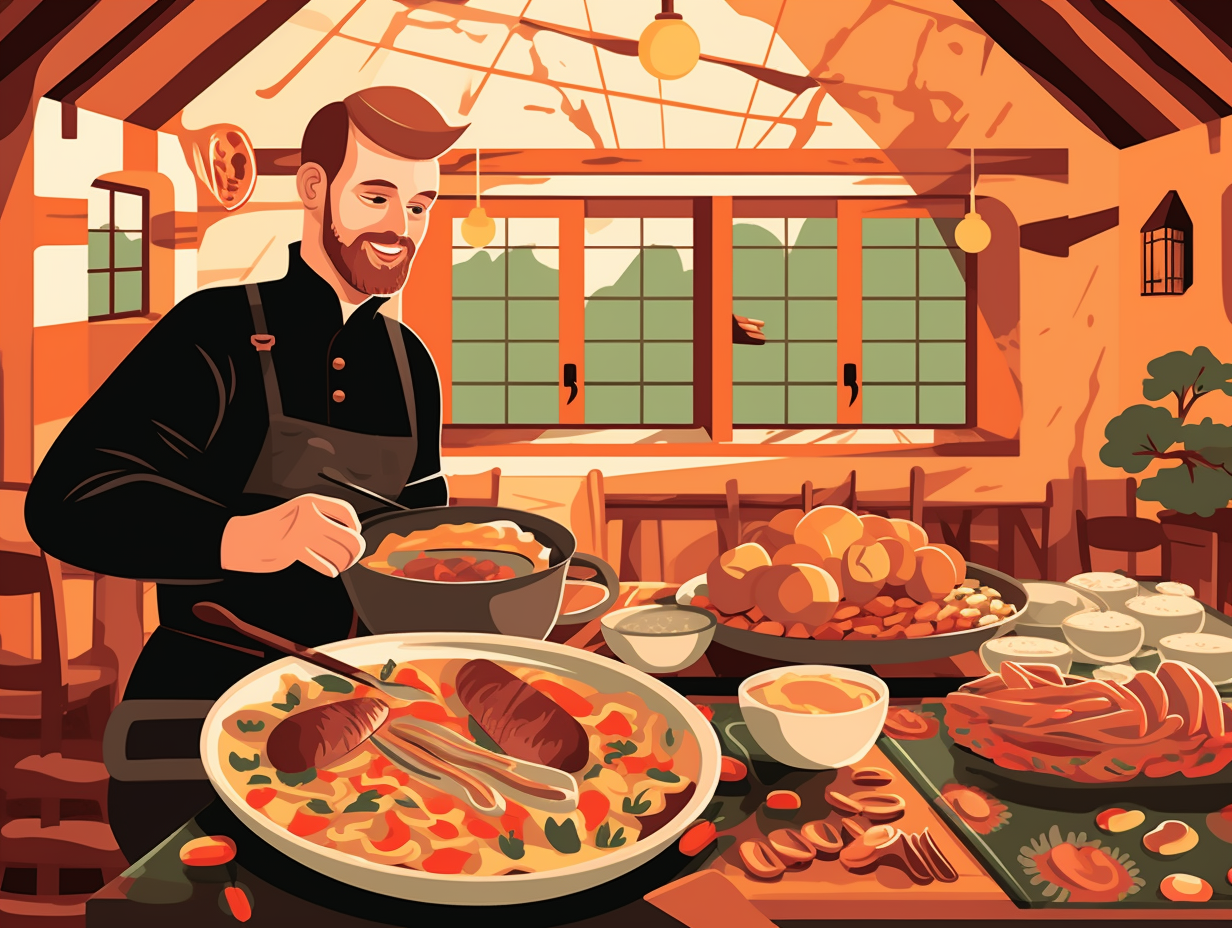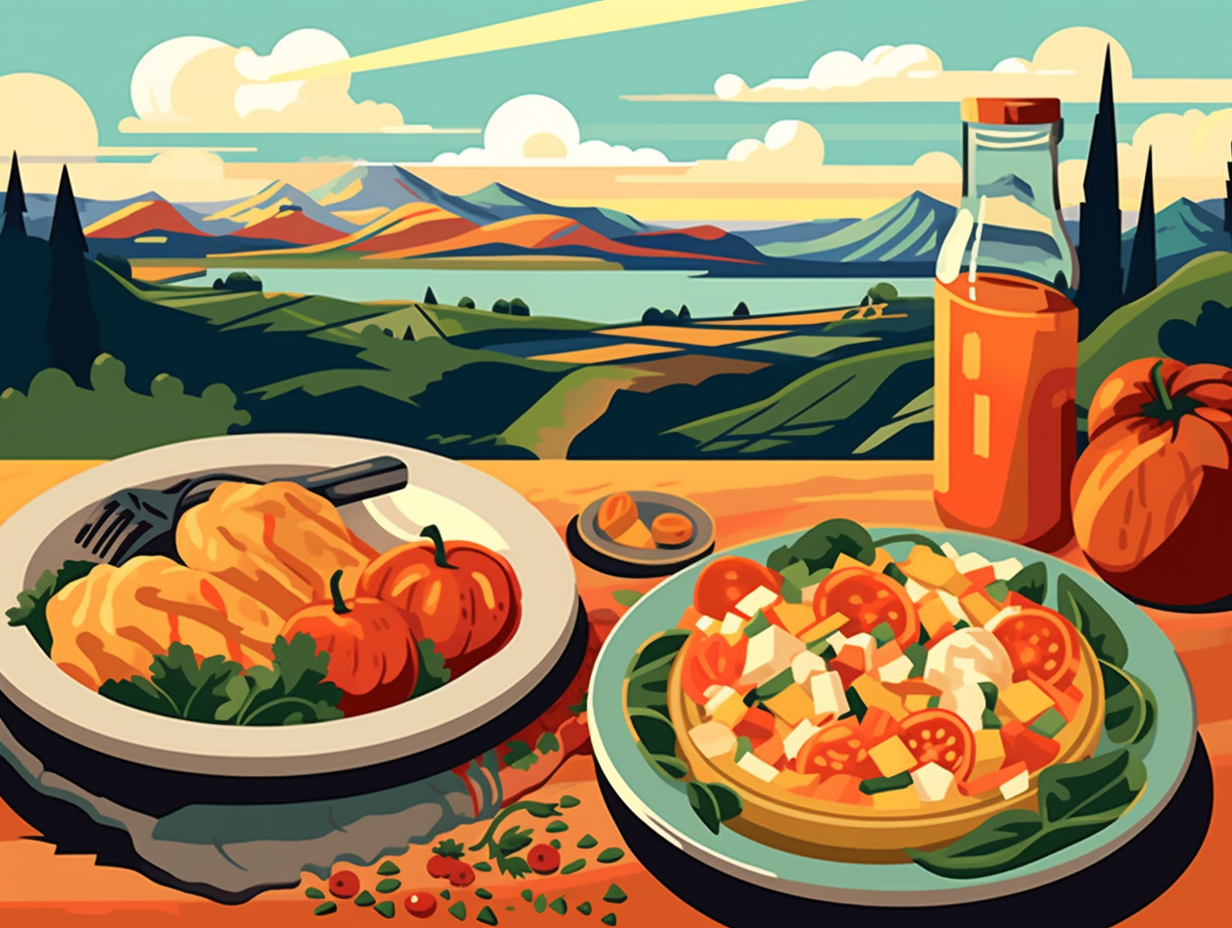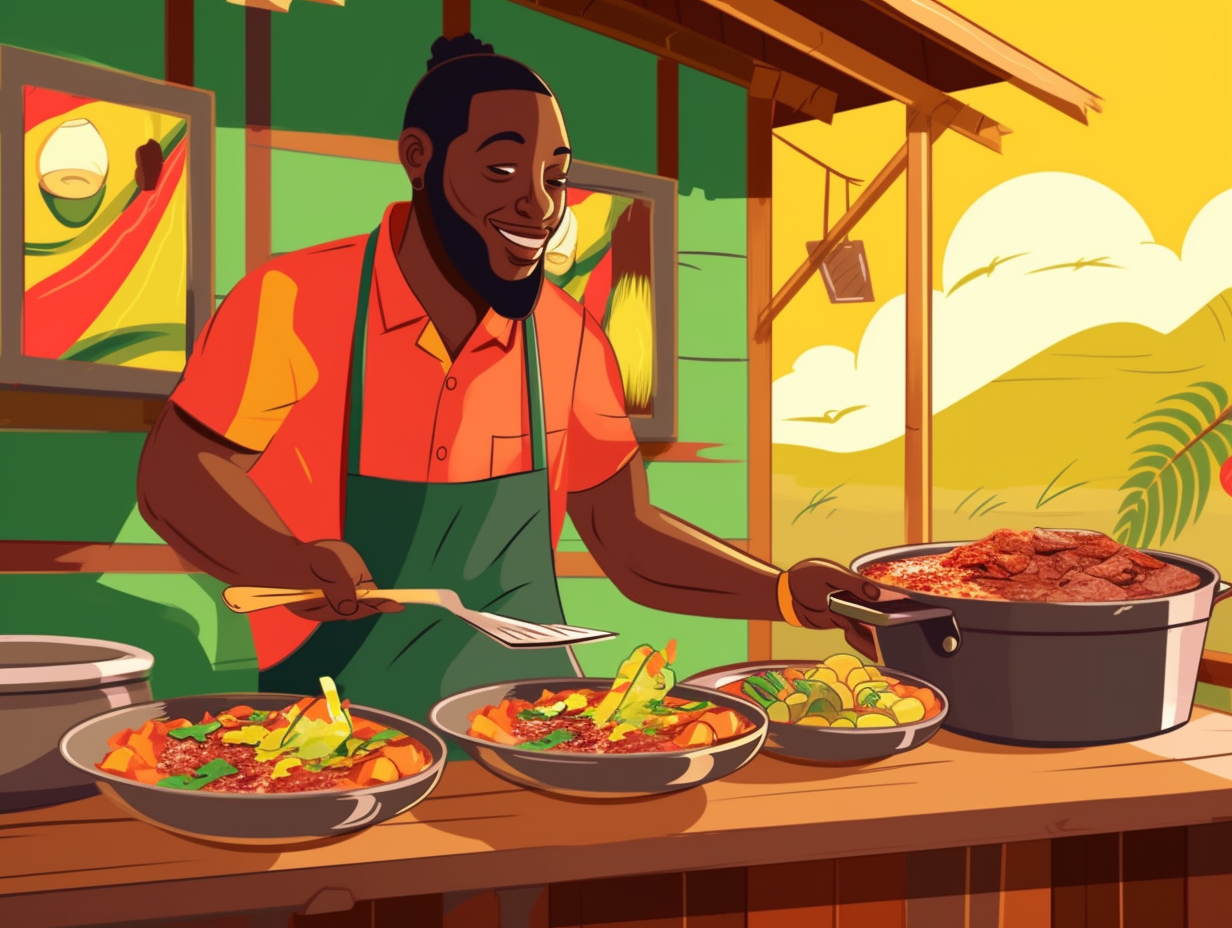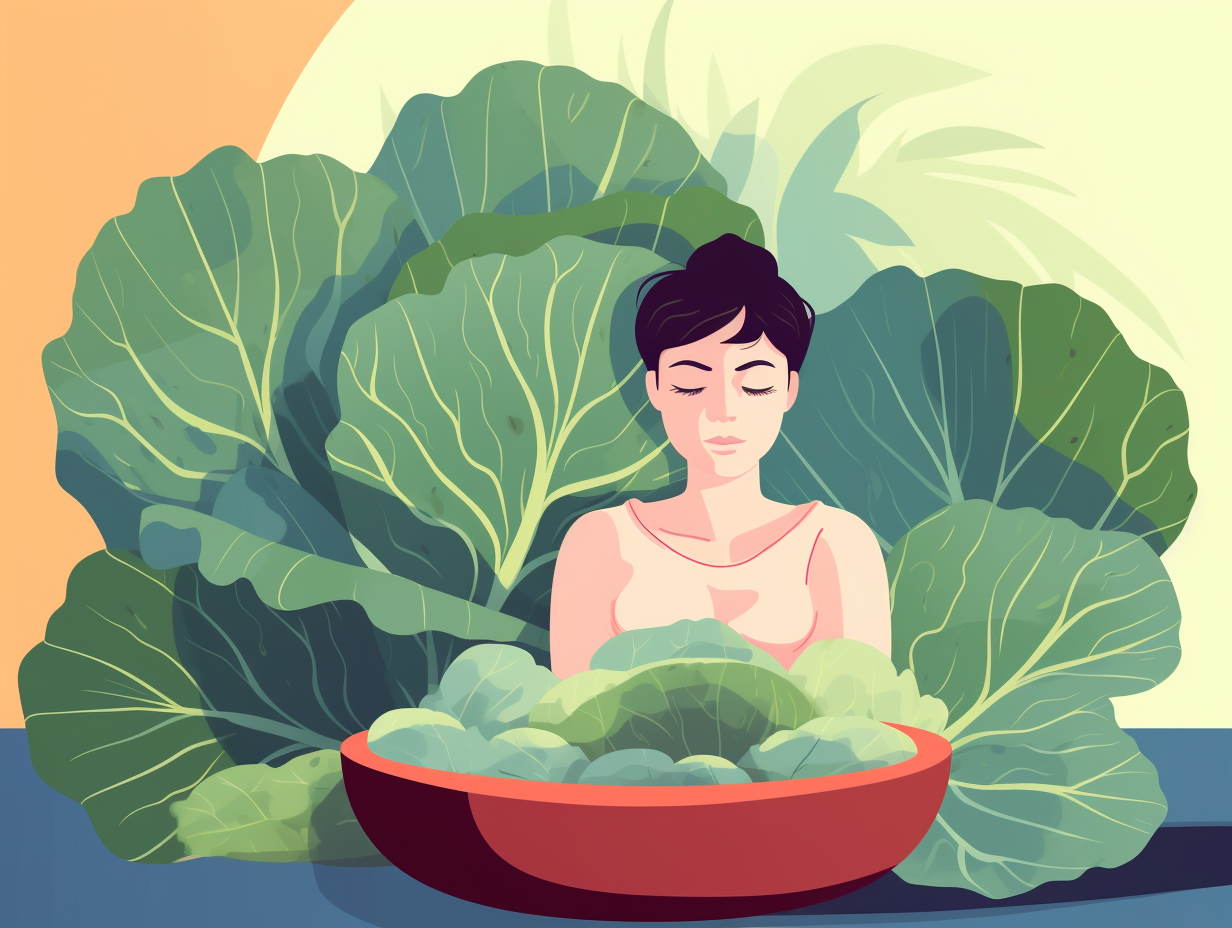Delightful Discoveries: Top 11 Fun Facts About German Food You Never Knew!

1. 300 Shades of Bread
Who needs 50 shades of grey when you've got 300 shades of German bread, each ready to seduce your taste buds in a crumb-tactic love affair? There's a bakery for every dream and a pastry for every inclination: Sneak a fact on this grainy rendezvous - Germany is home to roughly 27,000 bakeries producing around 300 types of breads and 1,200 varieties of pastries and rolls, debunking the myth of stodgy, dense loaves with options like Mischbrot, Bauernbrot, and Koernerkruste - boasting softer, moister crumbs and impressive whole grain nutritional values. Guten Appetit!
Source => breadvillage.com
2. Sauerkraut: The Unassuming Hero
Who needs Superman when you've got superkraut? Yes, folks, sauerkraut is the unassuming hero of German cuisine, rescuing unsuspecting taste buds and packing a powerful nutritional punch: Fermented cabbage is abundant in probiotics, essential vitamins, minerals, and fiber to improve digestion, strengthen the immune system, and even reduce cancer risks – truly, the Clark Kent of side dishes!
Source => culturesforhealth.com

Did you know that France's beloved escargot dish involves a slow and careful process of handpicking three edible snail species near the Alps, followed by a thorough inspection, washing, and expert cooking? Discover the secret to this classic French delight! 🐌🇫🇷🍽️
=> Fun Facts about French-Food
3. Wurst Wonderland
They say variety is the spice of life, and in Germany, that spice is wurst: Germany is a sausage wonderland, boasting over 40 varieties of Bratwurst alone, originating from Franconia, and hundreds of other types including the well-known Ahle Wurst and Regensburger Wurst. Although the total count remains a mysteriously delicious enigma, it's clear that Germany's rich sausage history profoundly surpasses the 1,500 types often mentioned.
Source => viatravelers.com
4. JFK's Berliner Moment
Donut worry, JFK wasn't jelly of his faux pas in Berlin: Contrary to popular belief, President John F. Kennedy did not make a humorous error when he said "Ich bin ein Berliner" during his 1963 speech in West Berlin, as the phrase is the correct way to express solidarity in German, despite its association with jelly donuts in other parts of the country.
Source => smithsonianmag.com

5. The American-German Chocolate Cake Twist
Ready for a dose of American pie with a German twist? Gird your baking loins for some chocolate revelation: the German Chocolate Cake is not actually German, but rather named after Samuel German, who whipped up Baker's German's Sweet Chocolate, the star ingredient in this cake's delectable filling. So don your lederhosen or stars and stripes, and prepare for the gustatory harmony between two nations!
Source => quick-german-recipes.com
6. Fruit Meets Fowl: Bratapfel ed Entenhals
Say goodbye to apples and oranges, and hello to Bratapfel ed Entenhals - the German dish that's ready to fruit up your life: Believe it or not, Germans enjoy combining dried fruits like plums, apples, and pears with soft-boiled goose or duck giblets, creating a one-of-a-kind flavor bomb by boiling the fruits with spices; then mixing it with the broth, seasoning, and majoran before serving alongside dumplings or potatoes, sometimes even throwing in a dash of heavy cream for an added layer of sumptuousness.
Source => recipelion.com
7. Bethmännchen's Almond Moderation
Unlike the Cookie Monster's insatiable appetite for cookies, the Bethmann family knew moderation was key, especially when it came to almond decor: Did you know that Bethmännchen, a popular German Christmas cookie around for almost two centuries, was originally adorned with four almond halves, but they reduced it to three to honor a deceased son? These scrumptious delights, created by a Parisian pastry chef in Frankfurt for the affluent Bethmanns, have charmed their way into the hearts of many Germans throughout the years, with a recipe that boasts a harmonious blend of homemade marzipan, ground almonds, flour, and rose water.
Source => daringgourmet.com
8. Leberkäse: A Case of Misnomers
Picture this: you're at a German deli, and the menu boasts the intriguing Leberkäse, which roughly translates to "liver-cheese." In your mind, you're imagining a Frankenstein-esque creation of organ meat and dairy delight. Worry not, food adventurers: Leberkäse is actually a delicious specialty made from beef, pork, and bacon, containing no trace of liver or cheese. The name is derived from an archaic German term for "loaf" and "cheese," but this culinary concoction is purely carnivorous.
Source => en.wikipedia.org
9. Sauerbraten's Zesty Secret
When you think Germans can't get any sauer at the dinner table, guess again: Sauerkraut aficionados, behold the wonder of sauerbraten, a traditional German dish marinated for 2-3 days in a zesty blend of red wine, vinegar, and spices, and cooked to tender perfection, with crushed gingersnaps adding a delicious twist to the thick and flavorful gravy.
Source => houseofnasheats.com

10. Bow to the Tuberous Overlords
In a land where spuds are king and the citizens bow to their tuberous overlords: Germans enjoy their potatoes so much they consumed 59.4 kilograms per capita in the 2020/21 period, although not quite reaching the legendary 154 pounds (approx. 70 kilograms) commonly mentioned in potato banter.
Source => statista.com
11. Teufel Salat: Devilishly Delicious
Much like a devil in the kitchen, Germany's Teufel Salat is an enigmatic culinary creation that'll leave you on the edge of your seat and on the tip of your taste buds – with a cautious grin: This elusive dish, whose recipe varies widely, typically combines pickled onions and may even throw a hard-boiled egg or two into the mix, offering a devilishly delicious adventure for daring palates seeking a mysterious German meat salad.
Source => ask.metafilter.com
Related Fun Facts




















